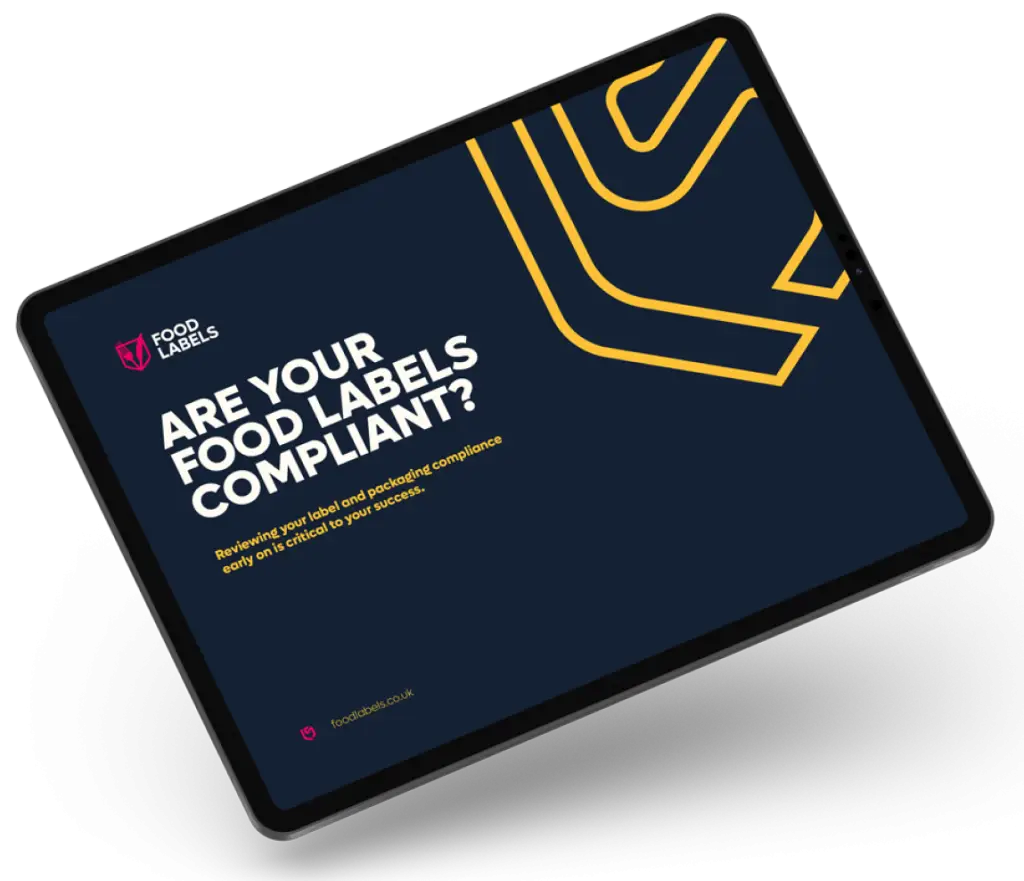On a simplistic level the story of the ongoing shortage of salad items in UK supermarkets is an easy one to tell: unseasonable weather in southern Spain and Morocco has impacted the crop, leading to a lack of imports from key supplier countries. But underneath lies a plethora of issues that go far beyond the trays where the tomatoes, cucumbers and peppers normally sit – and they’re issues that could lead to further supply-chain problems moving forward.
Among those issues are Brexit; the UK’s major supermarkets seeking to compete with the German discounters leading to farmers being squeezed on price; sky-high energy prices putting growers off heating glasshouses during the winter and the Government not intervening to sort out labour shortages and nor providing energy subsidies.
The British Retail Consortium (BRC), which represents the country’s grocers, is sticking to the narrative that weather in Spain and Morocco is causing a short-term problem. Andrew Opie, its director of food and sustainability, says: “Difficult weather conditions in the south of Europe and northern Africa have disrupted harvest for some fruit and vegetables including tomatoes and peppers. While disruption is expected to last a few weeks, supermarkets are adept at managing supply chain issues and are working with farmers to ensure that customers are able to access a wide range of fresh produce.”
The UK government is also largely echoing the line that this is something of a blip that can easily be remedied. In a statement, food and farming minister Mark Spencer said: “Shoppers need to know that our food supply chain is extremely resilient, as we saw during Covid-19, with our retailers and farmers working hard day-in-day-out to keep the nation fed.”
However, suggesting an acceptance of the existence of wider issues, Spencer has spoken to supermarket chiefs and, according to a government statement, “asked them to look again at how they work with our farmers and how they buy fruit and vegetables so they can further build our preparedness for these unexpected incidents”. Meanwhile, food sector experts, while accepting the immediate issue of adverse weather conditions in growing locations, believe there are structural issues that need sorting out.
Multiple problems
Tim Lang, emeritus professor of food policy at City, University of London and author of the book Feeding Britain, says: “It’s very dangerous to just say it’s about the weather. Was weather responsible for the eggs and turkey shortages? It is only superficially accurate to say it’s about the weather. “We are dealing with multiple problems here. The snow in Spain and Morocco will fade away and another one [problem] will come along.”
Industry analyst Clive Black, director and head of research at Shore Capital, recognises the climate conditions in southern Europe and north Africa as an immediate cause of the issue but not the sole one. “The key factor behind where we are today is the weather. If we had had normal conditions in northern Morocco and southern Spain we wouldn’t have a shortage of produce. We need to be upfront about that. First and foremost this is a supply shortage,” he says.
“The more pertinent question is why is the UK short of produce compared to continental Europe. The supermarkets are well stocked there. “It comes down to basic economics. The UK is not very attractive now to salad and vegetable suppliers around Europe.”
Henry Dimbleby, the founder of the Leon food chain who authored the UK National Food Strategy report in 2021, reacted to the UK’s latest food shortage – which has seen some supermarket groups rationing consumers’ purchases of cucumbers, lettuce, peppers and tomatoes – by blaming what he sees as the UK’s “weird supermarket culture”, which results in suppliers struggling with rising costs while locked into fixed-price contracts. Writing in The Guardian newspaper, Dimbleby called it a “market failure” and said: “I don’t know another system where the supermarkets have these fixed-price contracts with suppliers”.
Morrisons has begun rationing a popular salad item as the upcoming cold weather could leave the vegetable in short supply. Shoppers noticed at Morrisons stores on Monday (April 24) that peppers have been limited to just two packets per customer. Notices have been left in the aisle informing customers of the limitations. According to the Retail Gazette ‘unseasonably cold weather in Spain means that peppers have become the latest vegetable to be in short supply.’
This follows a widespread tomato shortage in February which saw numerous supermarkets also limit the amount you could purchase. In February, Lee Stiles, secretary of the Lea Valley Growers Association (LVGA), told the BBC: “The majority of tomatoes, peppers and aubergines are not going to be around in big volumes until May.” A notice was also left out in one Morrisons shop in February that read: “Availability across our tomato range has been significantly impacted by adverse weather conditions across Spain and Morocco.”
Strategy
Like Dimbleby, the National Farmers Union (NFU) also believes there are structural issues that need to be resolved. In the wake of the UK salad shortage, the NFU has launched a strategy intended to boost horticulture. “If backed by government this could be the solution to minimising future supply chain disruption,” it says.
The NFU’s suggestions include sustainable energy supplies, access to skilled labour, productivity investment and supply chain “fairness”. NFU president Minette Batters said: “The consequences of undervaluing growers can be seen on supermarket shelves right now. Shelves are empty. This is a reality we’ve been warning government about for many months. Without urgent action there are real risks that empty shelves may become more commonplace as British horticulture businesses struggle with unprecedented inflationary pressures, most notably on energy and labour costs. She added: “To meet this ambition, government must deliver on the levers for growth in the sector it highlighted in its Food Strategy last summer.”
Speaking to Just Food, Martin Emmett, the NFU’s horticulture and potatoes board chairman, says: “This [shortage] was absolutely not a one-off. We can assume this is a given that it’s going to happen and we can’t put all our eggs in one basket. “The current situation has highlighted something we predicted, so hopefully the government will listen. What we need to do is look at the supply-chain narrative to create more resilience and spread the risk. After Dimbleby’s report Defra [the Department for Environment, Food & Rural Affairs] said it was working on a growth strategy for horticulture, but we haven’t seen evidence of significant progress.”
Reliance on imports
According to figures quoted by the NFU, 50% of vegetables and 15% of fruit in the UK is produced domestically. When it comes to salad items, UK broadcaster the BBC quotes statistics revealing that of all the tomatoes eaten in the UK – about 500,000 tonnes a year – UK growers produce a fifth. More than a third of tomatoes eaten in the UK currently come from Morocco.
In the winter, any shortfall can usually be made up by domestically-grown tomatoes nurtured indoors but there has been a shortage of seasonal farm workers, partly as result of post-Brexit rules and foreign workers heading home during the pandemic. Meanwhile, high energy costs have deterred UK growers from heating glasshouses.
Lee Stiles, secretary of the Lea Valley Growers Association (LVGA), which represents members throughout an area close to London that has been dubbed the UK’s “cucumber capital”, says: “The costs of growing produce over winter have gone up by 100% because of rising energy costs. “And we only get workers for six months under the [post-Brexit] Seasonal Workers Scheme and then they can’t return for 12 months, so they have to be staggered and we are constantly training people which brings additional costs. “We are at such a disadvantage compared to European growers with their freedom of movement.”
Inflation
The cost of living rose more than expected last month as salad and vegetable shortages helped push up food prices at the fastest rate in 45 years. Alcohol prices in restaurants and pubs also drove up costs for households, as inflation jumped to 10.4% in the year to February from 10.1% in January.
Clothing costs, particularly for children and women, rose last month but fuel prices continued to fall. The UK’s central bank, the Bank of England, will decide whether to increase, lower or hold rates as it continues its battle to curb inflation. It has put up interest rates 10 times since December 2021, as it seeks to make borrowing money more expensive and encourage people to spend less, with the aim of stopping prices rising so quickly.
To calculate inflation, which measures how prices change over time, the Office for National Statistics (ONS) tracks the prices of hundreds of everyday items. It said the continued rise in food costs had been a big factor in February’s inflation figure, coming at a time when supermarkets were experiencing shortages of some salad items and vegetables.
One solution
The National Farmers’ Union said it was “absolutely bizarre” the Royal Botanical Gardens have received funding through the Government’s Energy and Trade Intensive Industries scheme, while the country’s food producers have been left behind.
A British company has come up with an idea that could solve the UK’s salad shortage crisis. Oasthouse Ventures, based in Bury St Edmunds and Norwich, thinks it has the answer to the salad farming problem caused by rocketing wholesale gas prices, which have had a massive impact on salad growers. The company has created huge greenhouses that extract heat from sewage at local treatment works. It then transfers the heat to its greenhouses using heat pumps to grow peppers, tomatoes, and cucumbers.
Oasthouse Ventures said their innovation can sidestep supply issues caused by “geopolitics” and “global fluctuations” in the gas and oil industry. The National Farmers’ Union has warned that the UK is in for the lowest salad production year ever recorded. Gas-reliant growers have been hit hard by a reported 156% surge in wholesale gas prices since 2019.
The shortage of some fruits and vegetables in UK supermarkets at the beginning of this year has made the country hugely dependent on imports for salad and fresh produce. Ed Moorhouse, the business development manager at Oasthouse Ventures, said that their method of extracting heat from sewage provides more stability than relying on gas.
He said: “Our greenhouses are not subject to geopolitics and global fluctuations in the hydrocarbon market that have shut many greenhouses in the UK and abroad, one of the key reasons we had shortages this spring.” He also said the company’s solution is immune to the effects of climate. He added: “When you decouple your day-to-day operation from gas prices and grow fresh produce in a country with ample rain and good levels of sunshine, you largely deliver food security and provide assurances of supply to supermarkets.”
Greenhouse salad production is also affected by high running costs, and expensive equipment. Oasthouse Ventures initially benefited from the government’s Renewable Heat Incentive scheme, but this program has now ended. Schroders Greencoat, the investor behind Oasthouse Ventures’ sites, presented a plan to the Government in 2022 for 40 possible new sites but they haven’t received any support yet, despite ongoing issues with food production and supply security in the UK.














